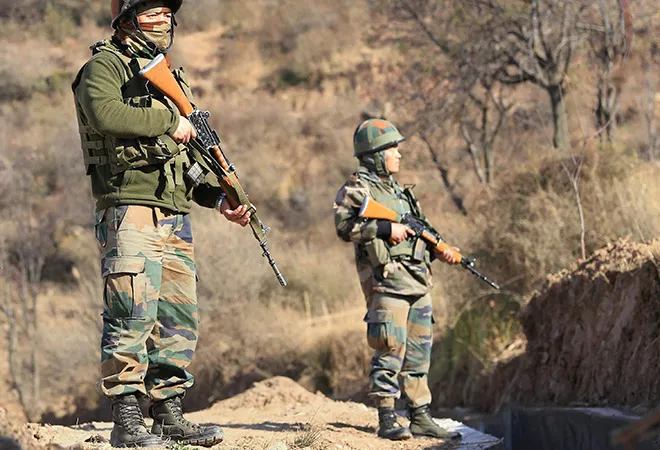In and of itself, a terrorist attack, no matter how dastardly or horrific, is nothing more than an event in which people are killed and terrorists try to make a statement. The strategic significance of a terrorist attack, even a spectacular one like 9/11, 26/11 or Pulwama, is not so much in terms of how many people it kills or how much damage it causes, but more in terms of the impact and consequences it leaves in its wake. One year after the Pulwama suicide bombing by a local Kashmiri terrorist working for the Pakistani jihadist terror organisation Jaish-e-Mohammad, it is clear that it was a watershed moment, not so much because over 40 CRPF personnel were killed, but because of the way India drew a line in the sand and signalled a complete break with the decades old pusillanimity that had guided its response to unrelenting export of terrorism by Pakistan.
In a strategic sense, Pulwama has been something of a disaster for Pakistan and its irredentist ‘Kashmir cause’. The momentary pleasure and gratification felt by Pakistanis at the sight of bodies of Indian security personnel blown to smithereens was probably far outweighed by the sheer impotent rage and the helpless flailing like headless chickens that Pakistanis have been reduced to doing as a consequence of the chain of events that Pulwama set in motion, not the least of which was the ‘annexation’ of Jammu and Kashmir by abrogating Article 370, bifurcating the erstwhile state and making the two new entities Union Territories. By breaching the threshold of tolerance of the Indian state and society, Pulwama became the metaphor for the new dynamic that has come into play, not just in the erstwhile state of Jammu and Kashmir but also on India's policy towards Pakistan. After Pulwama, India’s cup of patience has run over, and this fact was emphatically declared to Pakistan and rest of the world with the Balakot airstrike. Even before Pulwama, India’s patience was being stretched to the limit of tolerance, only the Pakistanis didn’t read the signs correctly. After Pulwama, the Pakistanis are no longer sure of how India will react, where it will hit back, what will be the scale of retaliation. The uncertainty and ambiguity that has been injected into the India-Pakistan escalation cycle is now keeping the Pakistanis on the tenterhooks, constantly guessing India’s response to any adventurism by them.
The Pakistanis have always known the dangers of pushing things too far. They tried something like this in 1965, and then had to fight a desperate rear-guard action to save Lahore. Ever since the jihadist terrorism was foisted on Jammu and Kashmir, the Pakistanis have been carefully calibrating the violence and following the dictum of keeping the pot simmering but ensuring it doesn’t boil over. Occasionally someone lifts his eye off the pot, or tries to push the envelope to test India’s response and resolve. This happened many times, including the Mumbai serial blasts in 1993, the Mumbai train bombings in 2006, and the Mumbai 26/11 attacks. On each such occasion, both India’s response and resolve was found lacking. The first time this changed was in 2016 when the Narendra Modi government ordered the ‘surgical strikes’ in retaliation to the Uri attack. But that was a shallow thrust. After Pulwama, the Balakot retaliation signalled a clear shift in paradigm of both policy and strategy. Sure, the Pakistanis were quick to come back a day after Balakot, but they did this hoping that India wouldn’t climb the escalation spiral. India didn’t last time, it most likely will be less restrained next time. This spooks the Pakistanis because it will mean getting into a fight they can’t afford and don’t want.
Prime Minister Narendra Modi’s detractors always ascribe baser motives to his reaction to Pulwama. They insinuate that the Balakot attacks were carried out with an eye on the general elections. The fact however is that something like Balakot would have happened even if there were no elections because anyone who had even a modicum of insight into the thinking of the Modi government would know they were not going to turn the other cheek like their predecessors. The Pakistanis know this and this ties them in a bind. Unless they want to risk a wider conflict by carrying out another spectacular attack, all they can do is launch minor hit-and-run operations which really don’t add up to anything, even less so because of the tight security grid in place.
Pulwama is therefore in many ways Pakistan's biggest blunder. It has lifted the restraints from India, called Pakistan's bluff, limited Pakistan's terror play, put it on the edge of uncertainty. In short, the supreme sacrifice of the CRPF personnel hasn’t gone in vain.
This commentary originally appeared in The Mail Today
The views expressed above belong to the author(s). ORF research and analyses now available on Telegram! Click here to access our curated content — blogs, longforms and interviews.




 PREV
PREV


